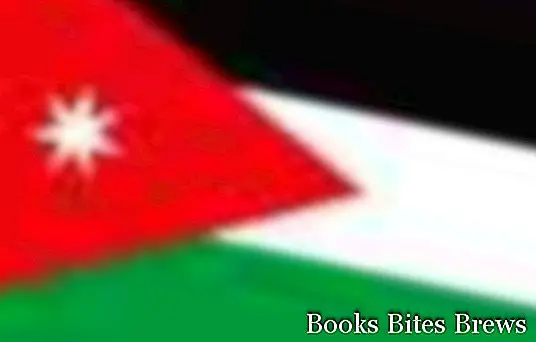Tourist guide with all the things to know for holidays in Jordan, information on the territory and climate, time zone, economy, best times to go, required documents and how to get there.
Jordan in a nutshell
- Capital: Amman
- Area in sq km: 92,300
- Population: 6,316,432 (2009)
- Religion: majority Sunni Muslims (about 92%), Christian minority (about 6%)
Where is it
Jordan or Hashemite Kingdom of Jordan is a state in western Asia. It borders Syria to the north, Iraq to the north-east, Saudi Arabia to the south and south, Israel and the Palestinian Territories to the west, and faces the Red Sea to the south-west.
The territory corresponds to a vast and arid plateau, the continuity of which is delimited on the western edge by the depression of the Jordanian river, the Dead Sea and the Arabau Valley.
The platform is characterized by ridges or isolated peaks whose altitude is around 1,000 meters above sea level.
The western rim is higher, where the plateau plunges over the Jordan and Arab valleys.
Hydrography
Divided between Israel and Jordan is the Dead Sea, in the deepest depression on earth (413 meters below sea level).
In this closed sea with very salty water, the Jordan River flows, a very important waterway for Jordan, considering the scarcity of surface waters.
The main tributaries that the river receives in Jordanian territory are the Yarmuk and the Zarqa.
Climate
The climate of the western part of the country is characterized by hot and dry summers and mild and relatively humid winters.
In January and February the temperature can drop below freezing and it can even snow.
As for the Jordan Valley and the Dead Sea, summer temperatures are very high, and there is no real winter season.
Recommended readings- Petra (Jordan): what to see
- Jordan: useful information
Continuing south and southeast the climate becomes desert-like with low rainfall and torrid summers, while in winter cold winds from Asia blow.
In the desert regions there is a strong difference in temperature between day and night.
Population
Jordan's population is 99% of Arab origin. There are also small minorities of Circassians, Armenians, Turks and Kurds.
Beginning in 1948, complex political events resulted in the mass arrival of Palestinian refugees from the West Bank, who settled in the north-western urban areas of the country, previously inhabited by the majority of the population, thus creating a overpopulation in urban areas of big cities, while in the rest of the country only a few Bedouin tribes live.
Time zone
In Jordan, the time difference is 1 hour ahead of Italy.
Spoken language
Jordan's official language is Arabic. English is widespread, especially in the commercial and tourism sectors.
Economy
Jordan is poor in natural resources and has a rather complex economic situation. There are few water resources in the country, little oil and is affected by the consequences derived from the loss of the fertile land of the West Bank and therefore the inclusion of a significant flow of immigrants from those territories, in a country already scarce of resources.
To this situation was added in 1991, the Gulf War, which caused the cessation of trade between Jordan and its main oil supplier, Iraq.
In addition, Jordanian citizens who worked in Kuwait and other Gulf countries were forced to return, so the country lacked a substantial source of income from their money remittances.
Agriculture can only count on 5% of arable land and is of a subsistence nature only, while livestock farming is highly practiced and is an important resource for nomadic shepherds and farmers.
The industry is based on small semi-artisan-run factories engaged in the transformation of local agricultural products and in the processing of wool.
There are also some cement plants, an oil refinery and a chemical complex for the production of fertilizers.
Mineral resources are important, especially phosphate deposits, which represent the main resource of the country, together with tourism.
When to go
The best times to visit Jordan are spring and autumn.
Necessary documents
In order to enter Jordan, Italian citizens need a passport with a residual validity of at least 6 months from the date of entry into the country.
An entry visa is also required, obtainable before departure by contacting the Jordanian Embassy in Rome, or the Consulates of Turin or Milan.
A visa can also be requested upon arrival at the airport or at the border, excluding the King Hussein Bridge / Allenby Bridge border.
The visa is issued free of charge to those arriving directly in the city of Aqaba, or reach this city within 48 hours of entering Jordanian territory through any border or Amman airport.
However, it is necessary to fill in the entry card.
In all other cases, the visa must be paid (approximately 10.00 JOD), is valid for 15 days, is valid for one entry only and must be used within 3 months from the date of issue.
To obtain a visa that allows 2 entries (usually it is not issued individually), you need to present a letter from the agency where the entire travel program is specified in detail.
Phone
- The international code to call from Italy to Jordan is: 00962
- The international prefix for telephoning from Jordan to Italy is: 0039
The GSM cellular network covers the territory.
Electricity
The electric current in Jordan is 220 V 50 Hz. The sockets are of various types, therefore a power adapter is required.
Currency
Jordan's official currency is the dinar (JOD). The euro can be easily changed in banks, and it is possible to withdraw at ATMs, except in smaller cities. The main credit cards are accepted in major hotels, restaurants, shops and travel agencies.
How to get
plane
The Jordanian flag carrier Royal Jordanian Airways offers direct flights from Milan and Rome to Amman.
With the Turkish company Turkish Airlines it is possible to reach Amman by stopping in Istanbul, however the duration of the journey is about double, compared to the 3/4 hours spent by direct flights of Royal Jordanian Airways.
Other airlines, including Lufthansa, Emirates, Air France, Egyptair connect Italy to Jordan, with a stopover in the capitals of the countries they belong to, but the journey time is much longer.
Vaccinations
No mandatory vaccinations are required to enter Jordan; vaccination against yellow fever is required only from those who come from infected areas.
However, vaccinations against hepatitis A and B are recommended, as well as antittification.
It is appropriate to follow some hygienic measures, drink only bottled water without adding ice, eat only cooked meats and vegetables, fruit only if peeled personally.
Before departure, it is recommended to take out health insurance that covers medical costs and a possible repatriation.




